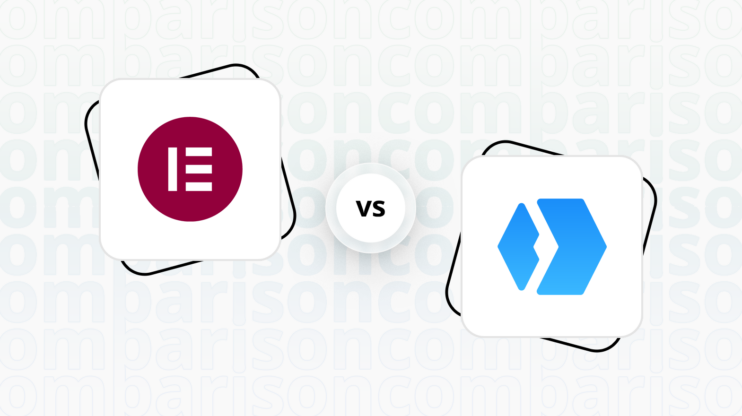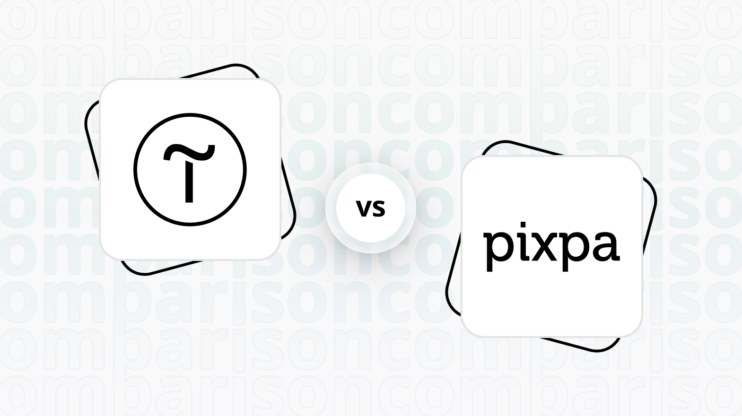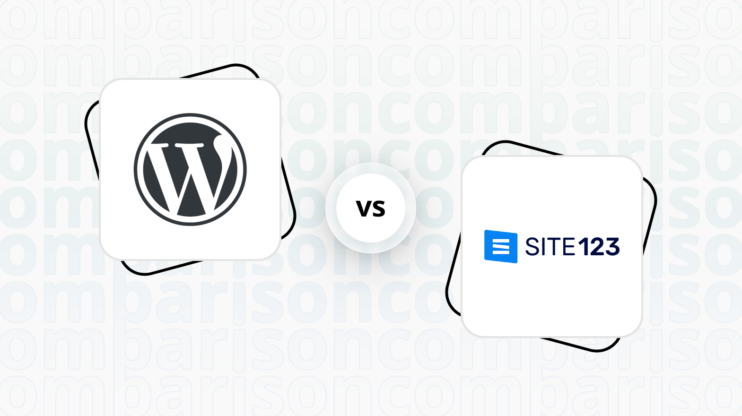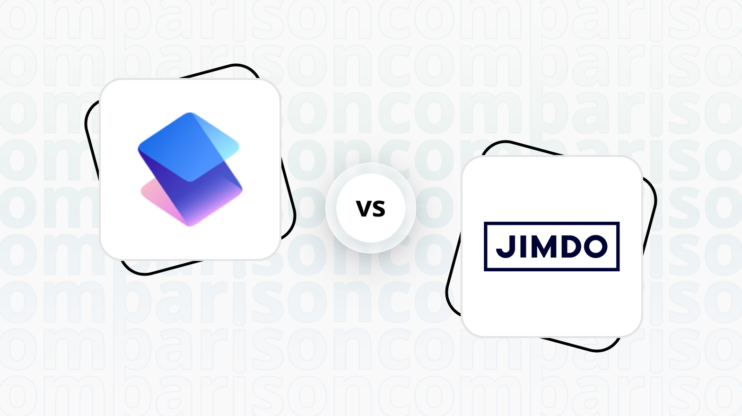WordPress vs HostGator: Final verdict
WordPress and HostGator both offer unique strengths, but they cater to different user needs and preferences.
-
WordPress (Overall Grade: 7.1/10)
is a versatile and powerful open-source CMS that excels in customization, design flexibility, and extensive plugin support. It is ideal for users who need a highly customizable platform for various types of websites, including blogs, business sites, and online stores. When comparing WordPress vs HostGator, WordPress stands out for its robust ecommerce capabilities, advanced user management, and extensive learning resources, making it a preferred choice for users seeking flexibility and control. -
HostGator (Overall Grade: 6.2/10)
offers a user-friendly website builder with a drag-and-drop interface, making it accessible for beginners and small businesses. It provides a range of customizable templates and solid hosting services, including 24/7 customer support. Considering WordPress vs HostGator, HostGator is a great option for users who prioritize ease of use, integrated hosting, and straightforward pricing, especially for those who need a quick and simple solution for building and maintaining their online presence.

|

|
|
|---|---|---|
|
Design functionalities & templates |
9.0 |
7.9 |
|
Ease of use |
7.2 |
8.0 |
|
Ecommerce |
8.4 |
6.3 |
|
Website Editors |
8.5 |
7.3 |
|
Product testing options |
8.1 |
2.6 |
|
Price |
5.9 |
6.2 |
|
Hosting quality |
0 |
8.0 |
|
Website speed optimization |
6.5 |
6.2 |
|
Plugins and integrations |
8.8 |
7.3 |
|
Marketing features |
8.0 |
6.9 |
|
Customer support |
5.0 |
7.3 |
|
Security |
6.7 |
7.4 |
|
AI capabilities |
6.1 |
2.6 |
|
User Management |
8.8 |
3.2 |
Which one is the best for ecommerce: WordPress or HostGator?
 8.4
8.4
 6.3
6.3
Verdict
: HostGator is suitable for basic ecommerce needs, while WordPress offers a more comprehensive and customizable solution for serious online stores.
-
WordPress
: With its WooCommerce integration, WordPress provides a robust ecommerce platform with extensive customization options, multiple payment gateways, and a vast ecosystem of plugins. This makes it ideal for businesses looking for flexibility and scalability. However, when comparing WordPress vs HostGator, WordPress might require a steeper learning curve due to its advanced features. -
HostGator
: Known for its user-friendly website builder, HostGator is perfect for those seeking a straightforward ecommerce solution. It offers essential ecommerce features and a variety of templates, making it suitable for small to medium-sized stores. However, it may lack the advanced capabilities needed for larger, more complex ecommerce operations.
Which one is the best for informational and business websites?
 9.2
9.2
 7.4
7.4
Verdict
: When it comes to creating informational and business websites, WordPress stands out as the superior choice due to its extensive customization options and vast array of plugins. HostGator, while user-friendly and offering solid support, falls short in comparison to WordPress’s flexibility and advanced features.
-
WordPress
: WordPress excels in providing a highly customizable platform with a wide range of themes and plugins, making it ideal for creating diverse informational and business websites. Its open-source nature allows for extensive creative control, and the vast community support ensures that users have access to numerous resources for building and managing their sites. With a score of 9.2, WordPress is the preferred choice for those seeking a robust and versatile platform. -
HostGator
: HostGator offers a user-friendly website builder with a drag-and-drop interface, making it easy for beginners to create professional-looking websites. It provides a variety of customizable templates and solid customer support, making it a good option for small businesses and users with limited technical knowledge. However, with a score of 7.4, it lacks the advanced customization and flexibility that WordPress offers, making it less suitable for more complex informational and business websites.
WordPress vs HostGator: Detailed comparison
Design functionalities & templates
Design FunctionalitiesRepresents how well each platform allows for creative design and customization of websites.Score Components:
- Template Variety (30%): Range and quality of design templates.
- Customization (30%): Flexibility and options for design alterations.
- User Interface (20%): Ease and intuitiveness of the design process.
- Responsiveness (10%): Adaptability to different devices and screen sizes.
- Innovation (10%): Unique design features and tools.
 9.0
9.0
 7.9
7.9
🏆
Winner: WordPress.
If you’re looking for a platform that offers more creative control and a wide array of design features, WordPress is the preferred choice.
WordPress offers an extensive variety of templates and designs, catering to a wide range of website types beyond just blogs or ecommerce. Its open-source nature allows for high customization and creative freedom, appealing to diverse user needs. While WordPress itself doesn’t sell premium templates, numerous third-party theme shops offer sophisticated and specialized design choices, expanding the possibilities for users.
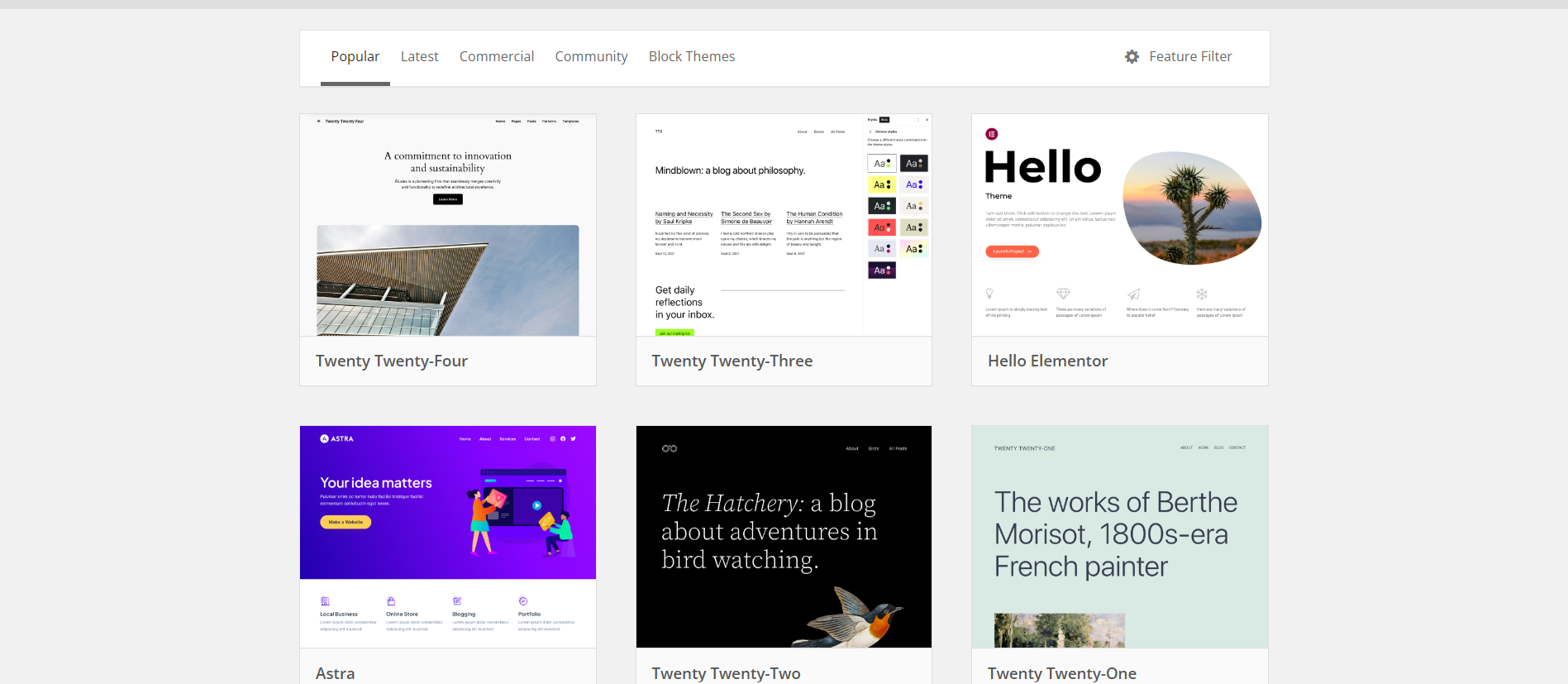

Compared to WordPress, HostGator website builder provides a substantial variety of design templates, catering to different user needs and preferences. It offers over 200 different mobile-friendly themes. Additionally, there’s a separate collection of 4,500 templates available for free download to users hosting their sites on HostGator servers, which are not interchangeable with the site builder’s own templates. This vast collection ensures that users have a wide range of design options to choose from, whether they seek simplicity for a professional presence or more intricate designs for complex websites.
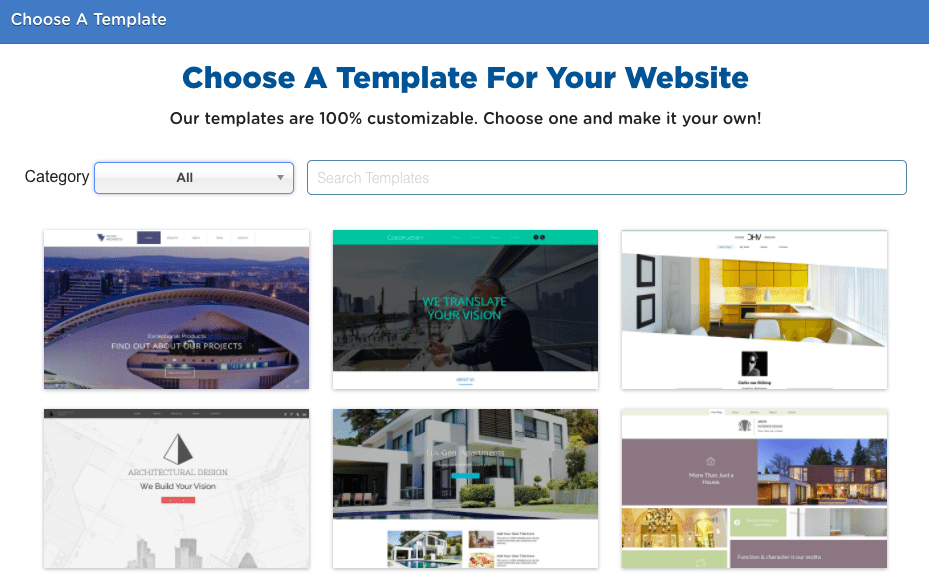
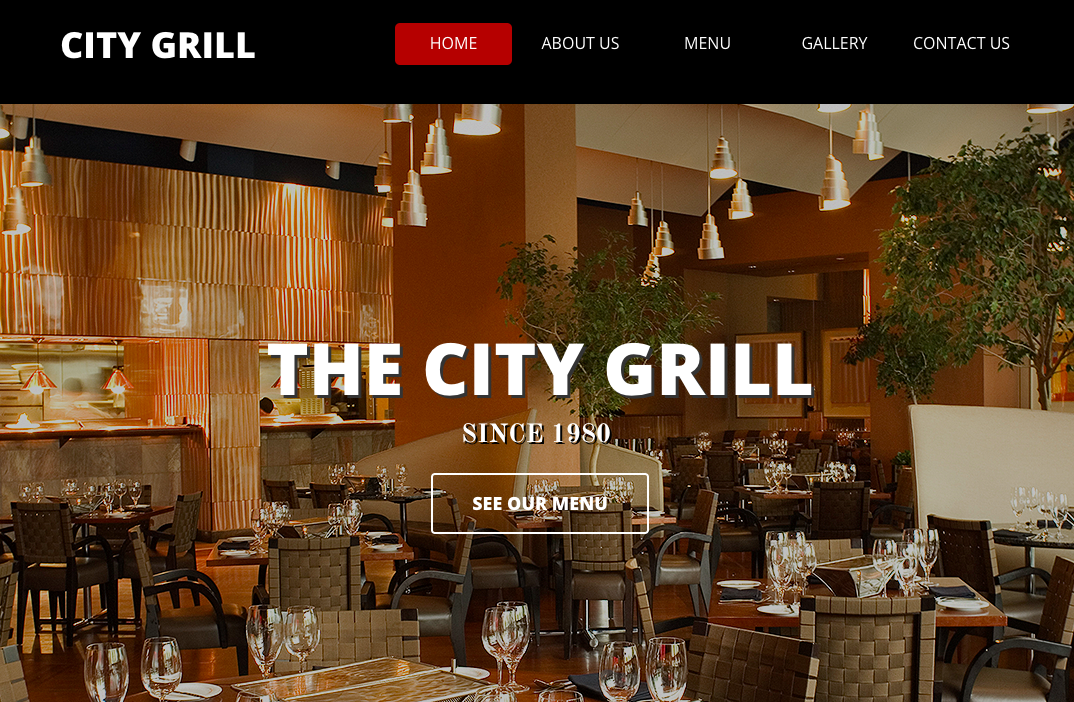
Get a head start on website creation with AI
Create a custom website tailored to your business needs 10X faster with 10Web AI Website Builder!
Ease of use
Ease of useReflects the platform’s overall user-friendliness.Score
Components:
- Learning curve (40%): Quickness and ease of getting started.
- Interface design (30%): Simplicity and intuitiveness of layout.
- User guidance (20%): Quality of tutorials and support.
- Flexibility (10%): Adaptability to various user skills.
 7.2
7.2
 8.0
8.0
🏆 Winner: HostGator
. Scoring 8.0, HostGator is known for its user-friendly interface and simple drag-and-drop builder, making it a great choice for beginners and small businesses. WordPress, with a score of 7.2, offers great flexibility and power, but it can be less intuitive for beginners. However, it provides advanced control over website design and functionality once mastered.
Learning Resources
🏆 Winner: WordPress
. WordPress is supported by a vast array of learning resources, including detailed documentation, community forums, online tutorials, and courses. This extensive support network is beneficial for users of all skill levels. On the other hand, HostGator offers a range of learning resources and features tailored for beginners, with comprehensive customer support available 24/7.
For ecommerce
EcommerceMeasures the platform’s effectiveness in supporting online business activities.Score Components:
- Ecommerce themes and templates (20%): Variety and design of templates.
- Product management (25%): Ease of managing and organizing products.
- Payment options (25%): Variety and convenience of payment methods.
- Ecommerce features (20%): Features for managing an ecommerce store.
- Integration (10%): Compatibility with external e-commerce tools and services.
 8.4
8.4
 6.3
6.3
WordPress, with its WooCommerce plugin, offers a robust ecommerce solution with extensive customization options, multiple payment gateway support, and a vast ecosystem of plugins. On the other hand, HostGator’s website builder includes ecommerce features, but it’s more basic in comparison, with limitations on the number of products on lower plans.

|

|
|
|---|---|---|
|
Ecommerce themes and templates |
9.2 |
7.0 |
|
Product page customization |
9.0 |
6.5 |
|
Payment processing and commissions |
7.5 |
6.0 |
|
POS capabilities |
6.5 |
5.0 |
|
Payment gateways |
8.5 |
5.5 |
|
Product numbers |
7.0 |
4.5 |
|
Additional ecommerce features |
8.0 |
6.5 |
WordPress ecommerce features:
- WooCommerce Integration
- Multiple Payment Gateway Support
- Abandoned Cart Recovery
- Ecommerce Analytics
- SEO Optimization Tools
- Extensive Plugin Ecosystem
HostGator ecommerce features:
- Secure Online Payments
- Unlimited Products (on higher plans)
- Product Search & Filtering
- Wishlists & Gift Cards
- Multi-Channel Inventory Management
- Shipping Labels
Ecommerce themes & templates
WordPress offers hundreds to potentially thousands of ecommerce and WooCommerce specific themes and templates, both free and premium. HostGator’s website builder caters to eCommerce needs by offering a broad selection of free templates, all designed with mobile responsiveness in mind. These templates are equipped with essential eCommerce features such as product catalogs and payment processing options.
Product page customization
WooCommerce on WordPress offers extensive customization for eCommerce product pages, balancing plugins, page builders, and custom coding. Advanced features like product tabs, upsells, and related products are customizable. HostGator Website Builder offers basic features for customizing product pages, enabling users to add products with details such as name, price, description, and images. It supports product variants and categorization to enhance customer navigation.
Payment processing
WordPress doesn’t handle payments directly but offers plugin options for payment processing. Popular gateways include PayPal, Stripe, Authorize.Net, and Square. HostGator Website Builder integrates with PayPal as a payment gateway for processing transactions. The platform charges a 3% transaction fee on Express Store and Express Site plans, no transaction fees are charged on higher Express Store plan.
Considering the features, availability, cost, and flexibility, WordPress appears to be a more robust and flexible ecommerce solution compared to HostGator. However, if you are looking for a more budget-friendly option with some free extras, HostGator might still be worth considering.
Website Editors
Website EditorsEvaluates the platforms’ website building and editing capabilities.Score Components:
- Customization tools (40%): Range and power of editing features.
- Editor usability (30%): User experience within the editor.
- Design flexibility (20%): Freedom in layout and design changes.
- Update and maintenance ease (10%): Simplicity of updating and maintaining the site.
 8.5
8.5
 7.3
7.3
🏆
Winner: WordPress
. WordPress, with a score of 8.5, offers a user-friendly interface with block-based editing, extensive styles customization, template management, page editing/creation, distraction-free modes, versatile saving options, and accessibility for users of varying skill levels. It also provides a WYSIWYG (What You See Is What You Get) interface, allowing users to see the final look of their website while editing.
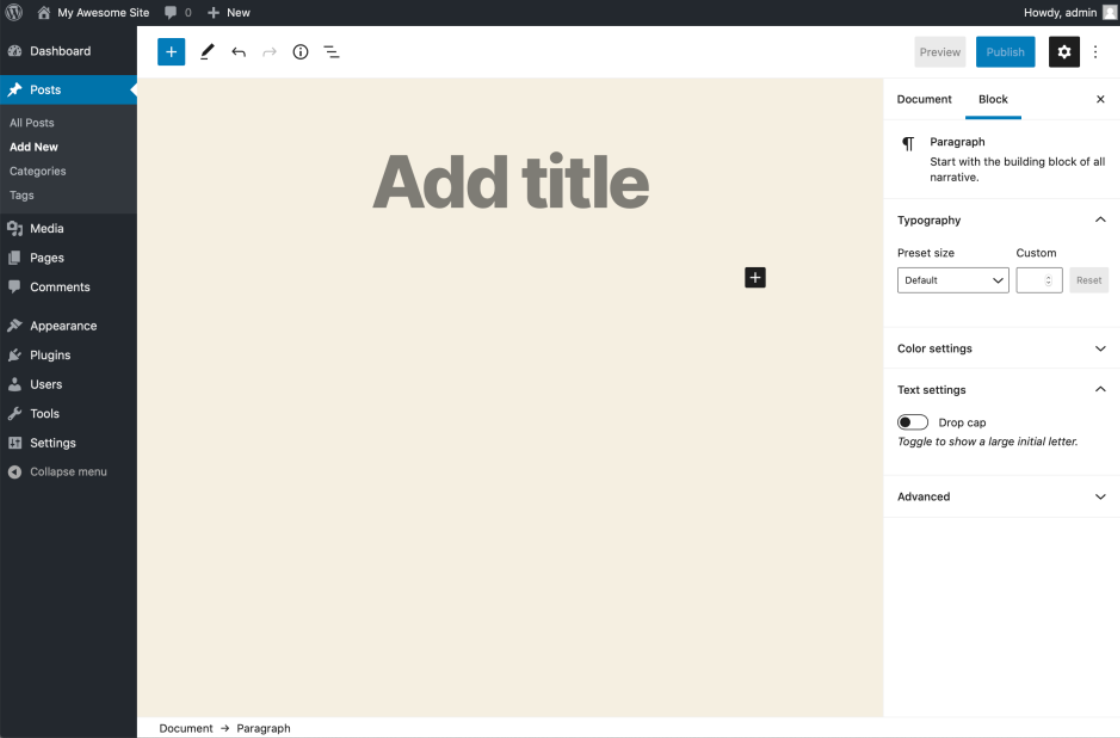
HostGator’s website editor, scoring 7.3, offers a user-friendly drag-and-drop editor, enabling users to easily create and customize their websites without needing any coding knowledge. It provides a wide range of templates that are fully customizable, allowing for the personalization of layouts, colors, and fonts to match the user’s brand identity. However, it has limitations, such as less flexibility for complex website functionalities compared to more advanced website builders or direct coding, and the customization options might be limiting for users with very specific design requirements.
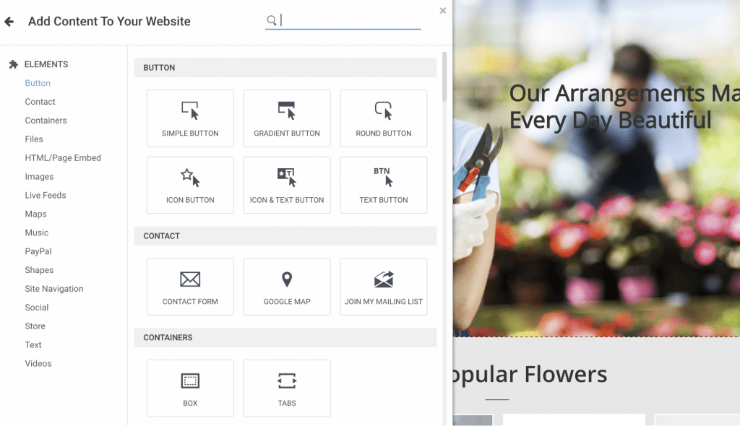
Mobile editor/app
 8.1
8.1
 4.0
4.0
🏆
Winner: WordPress
. Both WordPress and HostGator offer mobile capabilities, but they cater to different needs and skill levels. WordPress has a mobile editor app that allows users to manage their website on the go. You can create and edit posts, manage comments, schedule content, and analyze website traffic from your phone or tablet. While it offers convenience and basic functionality, it has some limitations compared to the web-based editor, including fewer advanced options, restricted code access, and limited design customization.
On the other hand, HostGator does not have a mobile editor app. It is possible to make some small changes using a mobile browser, but this is far less convenient and functional compared to a dedicated mobile app. Therefore, WordPress is the clear winner in this category due to its dedicated mobile app and the range of features it offers.
Product testing options
Product Testing OptionsAssesses the options for trying out platform features before commitment.Score Components:
- Trial quality (40%): Extent and usefulness of the trial or free version.
- Feature accessibility (30%): How many features are available to test.
- Trial duration (20%): Length of the trial period.
- Ease of transition (10%): Smoothness of moving from trial to paid plans.
 8.1
8.1
 2.6
2.6
Overall Result
: WordPress scores higher with 8.1 compared to HostGator’s 2.6. WordPress, being an open-source CMS, offers a free version but no trial version or premium features testing. On the other hand, HostGator doesn’t offer a free or trial version but allows testing all features within a 30-day refundable period.

|

|
|
|---|---|---|
|
Free Plan |
Yes (open source software) |
No |
|
Trial Duration |
No | No |
|
Testing Premium Features |
No |
Possible within 30-day refundable period |
Price
PriceLooks at the cost-effectiveness and value for money of each platform.Score Components:
- Plan value (40%): What each pricing tier offers.
- Transparency and clarity (30%): Clearness of pricing structures.
- Flexibility of plans (20%): Range of options to suit different budgets.
- Hidden costs (10%): Additional expenses not included in the plan.
 5.9
5.9
 6.2
6.2
While WordPress itself is free, the cost of hosting and additional services can add up. HostGator, on the other hand, offers a more straightforward pricing structure with its plans, but the cost can increase significantly after the first term.

|

|
|
|---|---|---|
|
Free |
Free Plan ($0/month): WordPress is open source software that is free. WordPress does not provide hosting services; so, it is necessary to purchase a domain, web hosting, and website builder subscriptions separately. While WordPress lacks built-in ecommerce, plugins like WooCommerce offer a solution. WordPress offers an extensive variety of templates and designs. WordPress lacks a built-in AI-assisted builder, but its open-source nature allows for an ecosystem of plugins and themes incorporating AI for website building. |
No offering at this amount. |
|
$10-$14 |
No offering at this amount. |
Express Start ($12.95/month): Includes hosting, basic analytics dashboard, 3 email campaigns per month, up to 3 products. Value for price: 6.0 |
|
$14-$20 |
No offering at this amount. |
Express Site ($14.98/month): Offers hosting, advanced analytics dashboard, 5 email campaigns per month, up to 10 products. Value for price: 7.0 |
|
$20+ |
No offering at this amount. |
Express Store ($26.98/month): Comprehensive plan including hosting, advanced analytics dashboard, 10 email campaigns per month, unlimited products. Value for price: 8.5 |
location. As a result in rare cases the prices displayed here can differ from the ones you see on their
websites.
Hosting quality
Hosting
qualityExamines the reliability and performance of the hosting solutions.Score Components:
- Uptime (40%): Consistency and reliability of website availability.
- Speed (30%): Loading times and performance.
- Bandwidth and storage (20%): Sufficiency of resources provided.
- Data centers (10%): Quality and distribution of hosting infrastructure.
 0
0
 8.0
8.0
Winner: HostGator
. HostGator offers a variety of hosting types, including shared, managed WordPress, VPS, and dedicated hosting, with unlimited storage and bandwidth. It also guarantees 99.9% uptime and has four data centers. On the other hand, WordPress does not directly provide hosting services, and its uptime, uptime guarantee, and data centers depend on the hosting provider chosen by the user.

|

|
|
|---|---|---|
|
Do they offer hosting? |
No, WordPress itself does not directly provide hosting services. | Yes, offers four main types of hosting: shared, managed WordPress, VPS, and dedicated hosting, with unlimited storage and bandwidth. The platform has automatic backup service which runs once a week on a random day. |
|
Data Centers: |
Data centers depend on hosting providers | 4 data centers: US(Texas, Utah), India(Mumbai), China(Hong Kong) |
|
Type of hosting: |
WordPress itself isn’t a hosting platform, there are various options when choosing the type of hosting for websites built with WordPress, such as: Shared Hosting, VPS Hosting, Dedicated Server Hosting, Managed WordPress Hosting, Cloud Hosting | Shared, Managed WordPress, VPS, Dedicated |
|
Uptime: |
Uptime & uptime guarantee depends on hosting provider | 99.9% |
|
Uptime Guarantee: |
Uptime & uptime guarantee depends on hosting provider | Yes, 99.9% |
Website Speed Optimization
Website Speed OptimizationEvaluates optimization of website loading timesScore Components:
- PageSpeed Score (30%): Google’s score indicating performance optimization.
- Loading Time (30%): The average time until a website is fully interactive.
- Mobile Optimization (15%): Optimization effectiveness for mobile devices.
- Resource Optimization (15%): Optimizing images, scripts, and other heavy resources.
- CDN Usage (10%): Use of CDN to enhance speed across geolocations.
 6.5
6.5
 6.2
6.2
🏆 Winner: WordPress
Both WordPress and HostGator place a high priority on website performance and page speed, with WordPress providing extensive resources for optimization and HostGator focusing on browser caching and CDN. However, WordPress gets a slight edge when it comes to website speed optimization.

|

|
|
|---|---|---|
|
Focus |
Extensive resources for optimization |
Browser Caching, CDN |
|
Performance Tools |
Core Web Vitals, WP Rocket, Hummingbird |
Google PageSpeed Insights Integration |
|
Key Strategies |
No specific strategy, relies on resources |
Browser Caching, CDN |
|
Load Times |
Varies widely, dependent on optimization |
Varies widely, dependent on optimization |
|
Page Speed Scores Range |
Scores vary; influenced by apps, images |
Varies widely, dependent on optimization |
|
Core Web Vitals Improvement |
Analyze CWV, optimize images, minimize plugins, use lazy loading, employ a CDN |
Emphasis on LCP, FID, CLS improvements |
WordPress, being an open-source content management system, does not have a specific strategy for website speed optimization. However, it provides extensive resources and tools like Core Web Vitals, WP Rocket, Hummingbird for users to optimize their websites. The load times and PageSpeed scores vary widely, depending on the optimization, apps, and images used on the website. WordPress also provides valuable resources for enhancing your website’s Core Web Vitals (CWV), such as analyzing CWV, choosing a reliable host, optimizing images, minimizing plugins, using lazy loading, and employing a CDN.
On the other hand, HostGator, a well-known web hosting company, focuses on browser caching and CDN for website speed optimization. The load times and PageSpeed scores also vary widely, depending on the optimization, website complexity, and the chosen hosting plan. HostGator provides guidance on understanding and improving Core Web Vitals (CWV) for websites, with an emphasis on LCP, FID, CLS improvements.
Get a head start on website creation with AI
Create a custom website tailored to your business needs 10X faster with 10Web AI Website Builder!
Plugins and integrations
Plugins and integrationsMeasures the range and effectiveness of additional plugins and integrations.Score Components:
- Variety of options (40%): Range of available add-ons.
- Integration smoothness (30%): Ease of integrating plugins into the site.
- Quality of plugins (20%): Functionality and reliability of the options.
- Custom integration capabilities (10%): Support for custom or third-party integrations.
 8.8
8.8
 7.3
7.3
🏆 Winner: WordPress.
With a score of 8.8, WordPress outperforms HostGator, which scores 7.3. WordPress offers over 60,000 free plugins, significantly more than HostGator. These plugins extend WordPress’s functionality across various domains, including advanced ecommerce tools, SEO optimization, social media integration, email marketing, website analytics, appointment scheduling, customer support, enhanced media galleries, blogging features, custom forms and surveys, diverse payment processing options, website localization, improved security measures, and the addition of custom widgets. HostGator also offers a wide range of plugins, known as apps, but the sheer volume and diversity of WordPress plugins give it the edge.
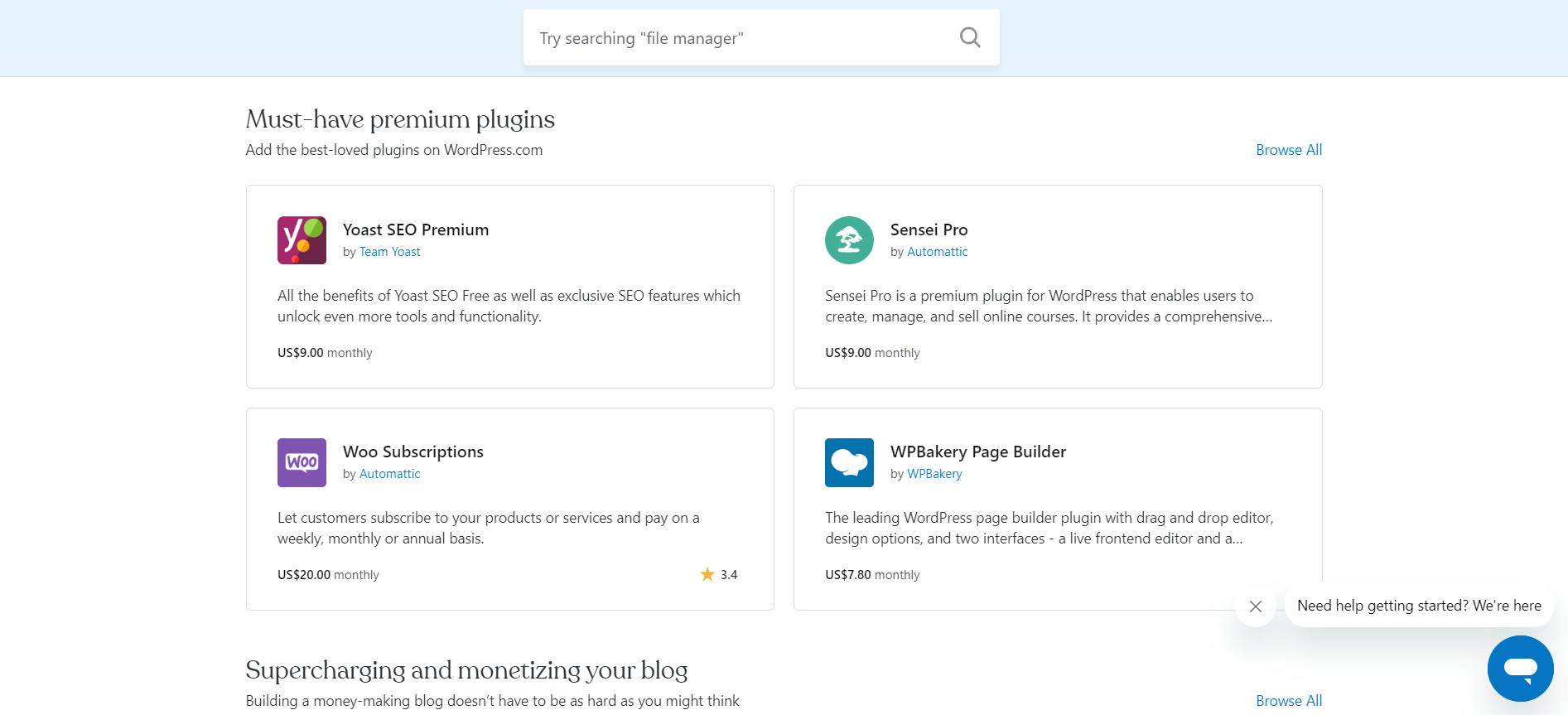
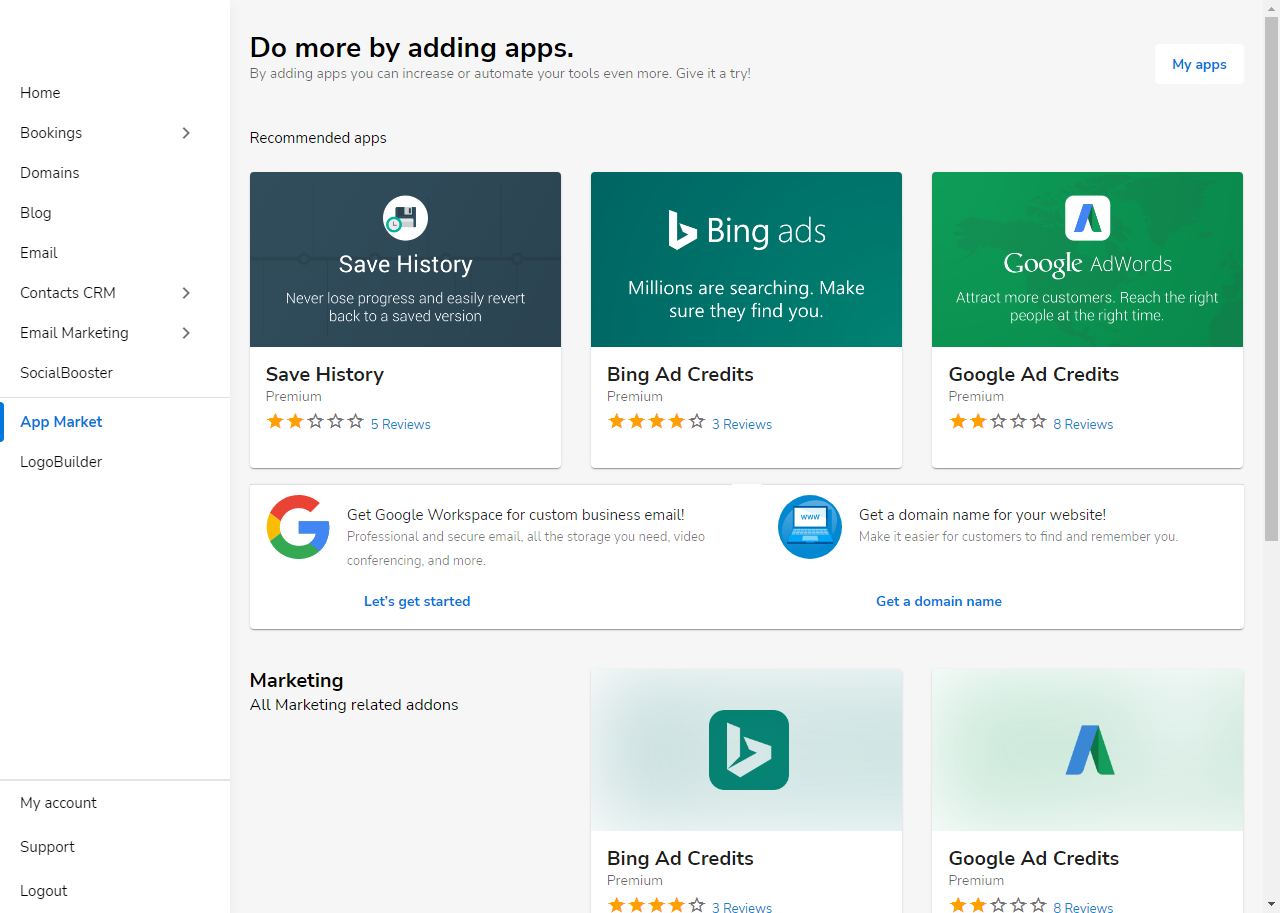
Marketing Features
Design FunctionalitiesRepresents how well each platform allows for creative design and customization of websites.Score Components:
- Template Variety (30%): Range and quality of design templates.
- Customization (30%): Flexibility and options for design alterations.
- User Interface (20%): Ease and intuitiveness of the design process.
- Responsiveness (10%): Adaptability to different devices and screen sizes.
- Innovation (10%): Unique design features and tools.
 8.0
8.0
 6.9
6.9
🏆
Overall Winner: WordPress
. WordPress stands out for its extensive customization options through plugins, making it suitable for a wide range of marketing strategies. HostGator, while offering a solid set of marketing tools, falls short in comparison, especially in the areas of blogging and analytics.

|

|
|
|---|---|---|
|
SEO Tools |
|
|
|
Email Marketing |
✓ (through plugins) |
✓ (on higher plans) |
|
Blogging |
|
|
|
Social Media Integration |
Plugins for direct linking, automatic posting, and social feeds display |
|
|
Analytics and Reporting |
In-depth analysis via plugins like Google Analytics for WordPress |
Yes, Google Analytics integration on higher plans |
|
Ads and Promotions |
Support for Google Ads and ad management through various plugins |
Yes, Google Ads and Bing Ads integration |
Customer Support
Customer supportEvaluates the quality and availability of support options.Score Components:
- Response time (40%): Speed of support responses.
- Support quality (30%): Effectiveness and helpfulness of the support.
- Availability (20%): Range of support channels (phone, chat, email).
- Resource richness (10%): Quality of self-help and educational materials.
 5.0
5.0
 7.3
7.3
🏆 Winner: HostGator
. In the comparison of WordPress vs HostGator, HostGator takes the lead with its comprehensive 24/7 customer support. HostGator offers multiple support channels, including email, phone, and live chat, ensuring users can get help whenever they need it. This round-the-clock availability is crucial for maintaining website uptime and addressing urgent issues promptly.
WordPress, being an open-source CMS, does not provide direct customer support. Instead, users rely on community forums, the WordPress codex, and support from hosting providers or plugin and theme developers. While these resources can be helpful, they may not offer the immediate assistance that some users require, especially those new to website building or facing complex issues.
Security
SecurityLooks at the platforms’ security measures and data protection.Score Components:
- Data protection (40%): Safeguards for user and customer data.
- SSL and encryption (30%): Implementation of secure connections.
- Compliance (20%): Adherence to industry security standards.
- Regular updates (10%): Frequency of security updates and patches.
 6.7
6.7
 7.4
7.4
🏆
Winner: HostGator
. HostGator takes the lead in security with a score of 7.4, compared to WordPress’s 6.7. HostGator’s commitment to data protection is evident in its integration of security features such as SiteLock for malware scanning and its adherence to GDPR compliance. In addition, HostGator secures its servers against various threats, including DDoS attacks, through extensive custom firewall rules and mod security rule sets. It also conducts regular password audits to encourage strong user password practices.
WordPress, on the other hand, provides numerous functionalities and resources to enhance website security effectively. Users can utilize multiple plugins to bolster security, such as those for site backups, monitoring, malware scanning, user activity tracking, permission control, and spam protection tools. However, the approach to private data storage and protection can vary depending on the hosting provider, which may not provide the same level of security as HostGator’s integrated measures.
AI Capabilities
AI capabilitiesMeasures the effectiveness of AI-driven features and tools.Score Components:
- Automation efficiency (40%): Impact of AI on streamlining processes.
- Personalization (30%): AI-driven customization for users or customers.
- AI-Assisted design (20%): Role of AI in website design and functionality.
- Data analysis (10%): Use of AI in interpreting user data and analytics.
 6.1
6.1
 2.6
2.6

|

|
|
|---|---|---|
|
AI-assisted Builder |
AI Site Builder and Zita plugins available for WordPress |
Basic AI capabilities in the new website builder |
|
AI Ecommerce Features |
AI plugins like Conversios, Ochatbot, AI Power, GetGenie, Woowoo, WooCommerce Multilingual, Rank Math and Yoast SEO available for WordPress |
|
|
AI Content Generation |
AI Engine, GetGenie, and AI Power plugins available for WordPress |
|
|
Additional AI Features |
Wide range of AI powered plugins and tools available for WordPress |
Basic AI features in the new website builder |
🏆 Winner: WordPress
. WordPress, with a score of 6.1, offers a wide range of AI capabilities through its open-source nature and ecosystem of plugins. It allows for integration with various AI plugins for tasks such as website building, ecommerce, content generation, and more. On the other hand, HostGator, with a score of 2.6, has limited AI capabilities with its new website builder and lacks AI ecommerce or content generation features.
User Management
User ManagementAssesses the platforms’ capabilities in managing user roles, permissions, and accessibility.Score Components:
- Role Customization (40%): Flexibility in creating and defining user roles and
permissions. - Ease of Management (30%): User interface and tools for managing users.
- Access Control (20%): Effectiveness of access control measures for different user
levels. - Scalability (10%): Ability to manage a growing number of users efficiently.
 8.8
8.8
 3.2
3.2
🏆 Winner: WordPress
. WordPress offers a more comprehensive user management system compared to HostGator.
- WordPress provides a range of user roles from Super Admin to Subscriber, each with different levels of permissions. Additional controls such as role management plugins and revision control offer further customization for specific editing rights and collaboration.
- HostGator mentions the possibility to have multiple users for its hosting solutions, however, there’s no mention whether the mentioned users have the permission to edit the websites built with their website builder.
WordPress User Roles and Access Levels:
| Role | Description | Access Highlights |
|---|---|---|
| Super Admin | Manages the entire network in WordPress Multisite. | Network admin, manage sites, users, plugins, themes. |
| Administrator | Full access within a single site. | Manage plugins, themes, users, all posts/pages. |
| Editor | Manages and publishes content, including others’ posts. | Edit/publish all posts, manage comments, categories. |
| Author | Publishes and manages their own posts. | Write, edit, publish own posts, upload files. |
| Contributor | Writes and edits their own posts but cannot publish. | Write, edit own posts (no file uploads or publishing). |
Additional Features

|

|
|
|---|---|---|
|
SSL Certificate |
|
|
|
Custom Domain |
|
|
|
Free Custom Domain Included |
|
|
|
International Domains |
|
|
|
Mobile Responsive |
|
|
|
Page Speed |
|
|
|
Website Builder Mobile App |
|
|
|
Convert a Website To An App |
|
|
|
Website Analytics |
|
|
|
Multilingual Sites |
|
|
|
Multiple Users |
|
|
WordPress vs HostGator: User Feedback
WordPress receives praise for its user-friendliness, cost-effectiveness, extensive themes and plugins, customization options, and supportive community. However, users mention technical challenges, security concerns, a learning curve, and a lack of direct support. Overall, it remains a widely used and versatile platform, especially beneficial for startups and small businesses.
HostGator’s website builder receives mixed reviews from users, highlighting both its strengths and areas for improvement. Users appreciate the platform for its ease of use, making it accessible even for novices to build professional-looking websites, and for its range of web services that facilitate website creation and management, including domain registration and SSL certificates. However, concerns are raised regarding its customer support, which is often described as slow or unresponsive, potentially impacting users requiring timely assistance. Additionally, some users find the pricing structure to be high, particularly for small-scale developers or those needing only basic services.
The making of this blog
We followed a clear, step-by-step process to write and research this article.
WordPress vs HostGator: FAQ
Which platform is better for beginners, WordPress or HostGator?
Can I use both WordPress and HostGator for ecommerce?
How do WordPress and HostGator differ in terms of customization and design flexibility?
What are the major differences in pricing between WordPress and HostGator?
Which platform offers better customer support, WordPress or HostGator?










